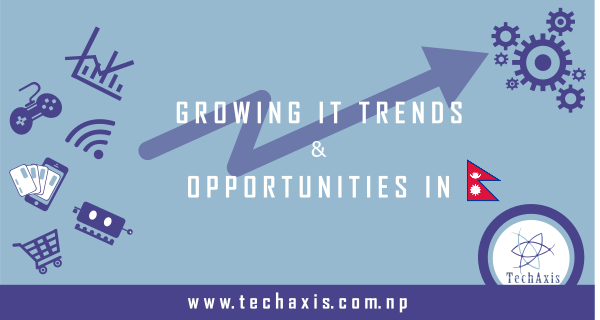
How to Become an Artificial Intelligence (AI) Engineer
Artificial Intelligence(AI) has been researched and studied for decades and has become one of the very cagey subjects in Computer Science because of its large and nebulous subject area.
Now all the aspects have got a concrete shape. Artificial Intelligence (AI) is in constant flux proportional to the discoveries of new and innovative technology. As per American-based business and employment online social media LinkedIn, there are 15000 job opportunities listed per day on their platform.
This article is for you if you also want to leave your mark in the field. In this article, we will demonstrate the step-by-step guide to becoming an Artificial Intelligence engineer. So, without any ado, let's get started.
What is Artificial Intelligence?
The term Artificial Intelligence was firstly coined by John McCarthy in 1956 at an academic conference. But the magazine published in 1945, "As We May Think" by Vannevar Bush, has already mentioned the vision that machines replicate the human mind's capabilities by implementing fundamental technological calculations.
Before jumping to the steps to becoming an Artificial Intelligence (AI) engineer, we must know what artificial Intelligence is in computers.
Artificial Intelligence (AI) is the approach to stimulating human Intelligence or natural Intelligence in machines programmed to replicate human actions. In the wider concept, if a machine exhibit traits associated with a human mind, such as learning or problem-solving in an eco-friendly way is known as Artificial Intelligence.
Types of Artificial Intelligence
Various types of AI can be categorized into two categories, as below.
Base on Capabilities
Narrow AI
Narrow AI is the common and currently available type of AI that can perform a dedicated task with machine intelligence. It is only programmed to work on its specific task and cannot perform the task beyond its limitations. Apple Siris and IBM's Watson supercomputer fall under Narrow AI. Self-driving automobiles, speech recognition, product suggestion, and chess playing are real examples of Narrow AI.
Super AI
Super AI is considered one step higher Intelligence of system which excels the human Intelligence and can perform tasks far better than humans in an analytical manner. Though the Super AI is still recognized as the theoretical concept of Artificial Intelligence (AI), it could perform complex tasks like solving puzzles, planning, learning, and communicating independently.
General AI
General AI is the approach and practical type of Intelligence in which machines replicate human behavior properties very efficiently. This is the concept of making machines think far better than humans on their own.
If we observe from the perspective of practical life, no such machine exists in the real world that could perform the task of general AI. This approach is still under research and is expected to be released in the very near future. Regarding the impact of general AI, it is expected that human civilization will take a new turn.
Based on Functionalities
Reactive Machine
Reactive machines are the most basic types of AI, which do not store memories or past actions for future actions. There is temporary or say real-time storage. These machines are designed in a way to respond to the current scenario and react to them as per the command. Example of Reactive Machine is IBM's Deep Blue system and Google's AlphaGo etc.
Limited Memory
Limited memory is the machines designed to store past experience data for a limited time. The practical examples of Limited memory are self-driving cars, where these cars can store the recent cars nearby, speed and limit, the distance between cars, and other information regarding navigating the roads.
Theory of Mind
Theory of Mind AI is the approach to designing machines to understand the emotional and moral aspects of humans in order to interact socially. In the present day, these types of machines are underdeveloped; researchers are making the concept more adjustable in the current world environment.
Self Awareness
Self-awareness is the advanced Artificial Intelligence and the future and futuristic AI technology. It is the approach of programming the machine and making them be superintelligence. These types of machines have their own consciousness, sentiments, and self-awareness. This machine is expected to be smarter than the human mind. Till now, it is a hypothetical concept.
Why is artificial Intelligence important?
In the present day, the quantity of data generated by the collaboration of humans and machines absorbs the human's ability to absorb, interpret and make complex futuristic decisions based on the data and information.
Suppose you are playing tic-tac-toe (noughts and crosses). Do you know that there are two hundred fifty-five thousand one hundred and sixty-eight (255,168) unique moves and forty-six thousand and eighty moves (46,080) moves to end in a draw? In this situation, how do you calculate the moves to win? But computers and AI approaches can perform the calculation, which brings you to win the match.
I mean that Artificial Intelligence machines can perform complex tasks in a very minimal amount of time. In contrast, Artificial Intelligence is important in the account of performing complex tasks in a short time, to replicates human activities following social protocol, and other types of advanced types of decision-making tasks.
Artificial Intelligence Engineers: Who Are They and What Do They Do?
We've briefly explored the fundamentals of Artificial Intelligence; now it's time to understand what types of professionals work in the field. Well, among the thousands of designations, Artificial Intelligence Engineers are considered the crucial staffing that contributes to the field. Let's know what ai engineers do.
AI engineers are responsible for programming, designing, developing, and training the complex and sensitive algorithm of a network to make the AI so that it can function like a human brain. This role includes combined expertise in software development, programming, data science, and data engineering within them.
Top career paths in Artificial Intelligence Engineer
There is enough path in Artificial Intelligence. Unlike other professions, AI can't create geographical barriers to performing the task of AI. There is a high global scope of artificial intelligence engineers, as mentioned below:
Machine Learning Engineer
Machine Learning Engineers are professional who deals with researching, building, and designing auto-running Artificial Intelligence (AI) system to automate predictive devices and models. They create the AI algorithm capable of learning and making a decision that defines machine learning.
Data Scientist
A data scientist is a professional who offshoots of several traditional technical roles to collect and analyze extremely large amounts of data. The typical role of the data scientist is to be skilled in math, science, and statistics and can be able to use advanced technologies, i.e., machine learning and predictive modeling.
R&D Engineers
R&D stands for Research and Development engineers, responsible for developing new products, performing and testing production concepts, and redesigning existing products. There is a high scope of the use of R&D engineers in business as it can be applied to scientific companies, electrical companies, and manufacturing companies. The professionals are also responsible for regulating the other employee in the critical designation. In a nutshell, the R&D engineers can work in the office environment rather than traveling, and in the end, they submit the project report to the project managers.
Business Intelligence Developer
A business intelligence developer is responsible for generating, organizing, and maintaining the business interface to automate the task on the business premises. Business intelligence developers are professionals who must have to be skilled in the complex categories of tasks such as data visualization, regulation, impromptu reports, and data query tools for the user to get the information they require.
Before Business Intelligence Development, the data should have to go through the Extract Transform and Load (ETL) process. The professional operates tasks on a single layer of a great whole.
Big Data Engineers
Big Data Engineers are highly skilled Information Professional (IT) professionals responsible for researching, designing, building, testing, and maintaining the complexity of the data processing system, which works in large data sets. The main motive of the Big Data Engineers is to make it easy for the Business Analyst and Data Scientist to enrich different forms of Data and helps in the systematic extraction of data and information.
Software Engineer
Software engineering is the branch of computer science that deals with designing, developing, testing, and maintaining software applications by applying the engineering principles of knowledge of programming language to build software solutions for the end users. Software engineers are highly demanded jobs compared to others because of their functional properties and nature of work. A software engineer must have proper knowledge of programming languages, platforms, and architectures to develop everything from computer games to network control systems.
Roadmap to becoming AI Engineer
The person who wants to become an AI engineer must pursue certain steps to increase productivity in their professional career. In this section, we are specially going to discuss The roadmap to becoming an AI engineer is mentioned and briefly described below:
Learn Programming Langage
Learning a programming language is the first step to becoming an Artificial Intelligence Engineer. One can start with a language that is applicable in AI. Here is the list of programming languages that work in Artificial Intelligence (AI):
- C++
- Python
- Java
- Lisp
- R
- Prolog etc.
We recommend starting with Java or C++ to help you understand the programming structure more clearly. The professional working under the AI Engineers is required to have a solid understanding of data structure and classes to be successful in the career, so the programming language is considered the first path to initiate a career.
Linear Algebra, Probability, and Statistica
The entire Artificial Intelligence will depend upon the type of algorithm you use, and statistics are considered the backbone of any algorithm. The advanced knowledge of statistics, calculus, algebra, and probability helps to boost the productivity of your AI program. Along the way of learning AI, one can encounter the Machine Learning models like Naïve Bayes, Hidden Markov, etc., that need a unique understanding of probability as well as need to be quite familiar with matrices, vectors, and matrix multiplication.
Knowledge of Spark and Big Data Technology
Knowledge of Spark and Big Data Technology helps the professional to manipulate large data sets. Spark, aka Apache Spark, is an open-source data-processing engine for the compilation of large data sets. The specific use of Spark is to stream data, graph data, machine learning, and artificial intelligence (AI) applications. Having sound knowledge of this can grow the professional exponentially.
Algorithm and Frameworks
As we've already mentioned algorithm is the most important thing which decides the AI program you've built. The main advantage of having sound knowledge and understanding of Algorithms and frameworks helps to build a super project. As there are numerous algorithms and frameworks in ai, as mentioned below:
- Classification
- Cluster
- Linear regression
Communication and Problem Solving Skills
Communication and Problem Solving Skills are used in a broader sense. Here it denotes the overall non-technical skills performed on the business premises. One must be confident in problem-solving, communication, and critical thinking to deal with complex clients to maintain and grow the business workflow. Not only in AI, but this step is also necessary for every kind of industry to fluently operate business activities.
Conclusion
Learning is the key to increasing overall productivity for everyone in their career. Moreover, AI is the sector that is considered the game changer profession of an entire civilization. Without a formal or informal education in Artificial Intelligence, it would be very hard to initiate a career for the tech enthusiast who wants to leave the mark in the highest and fastest growing sector.
If you are also seeking the best Information Technology (IT) educational institute to join the Artificial Intelligence AI Engineer course, TechAxis is here to help you out. We are one of the best educational institutes in Nepal to produce IT professionals. Our practical based teaching methodology makes you bold in your career.
Don't know how to enroll? Just leave a message at our mailing address. Our priority is to respond to your inquiries at soonest as.











